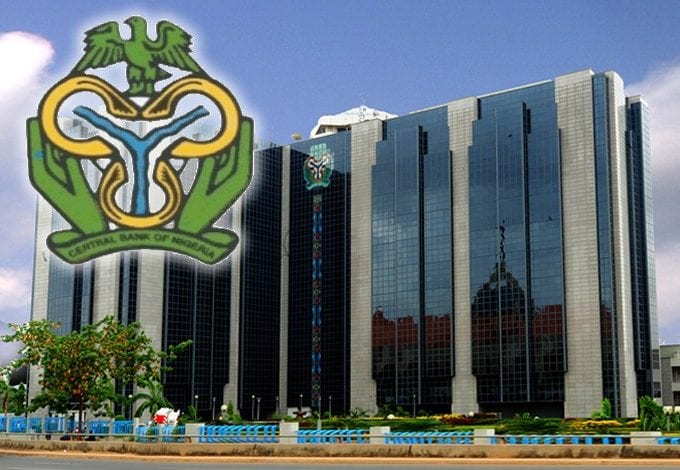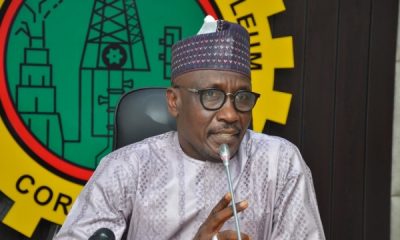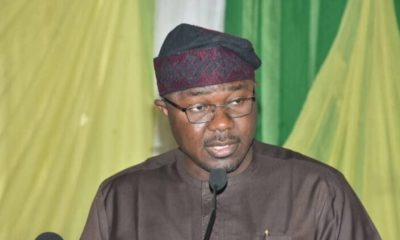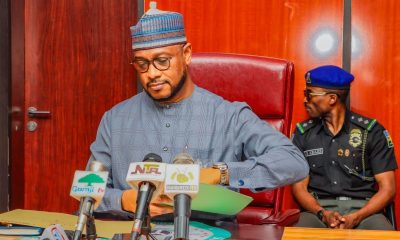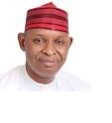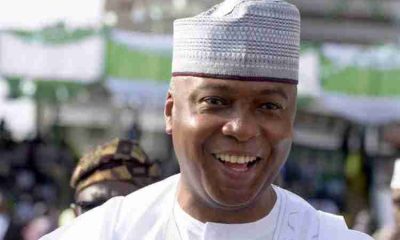BUSINESS
2021: NNPC in Retrospect
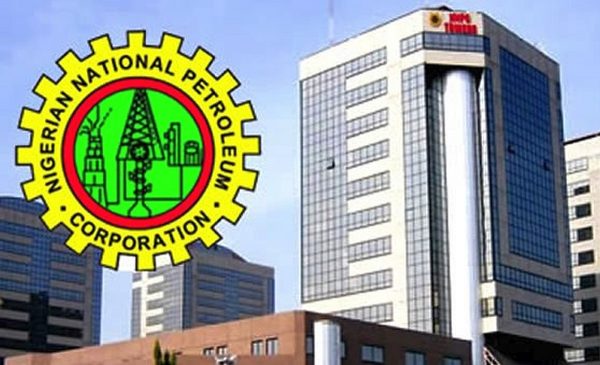
In retrospect, the Nigerian National Petroleum Company (NNPC) Limited recorded some remarkable achievements in 2021 including the signing into law of the Petroleum Industry Act (PIA) by President Muhammadu Buhari.
There are other major achievements in the industry which had placed the country on the part of success since the first discovery of crude oil in 1956 at Oloibiri, in present day Bayelsa.
The oil and gas industry had since grown to become the bane bedrock of Nigerian economic and a major source of national development.
The industry contributes about 30 per cent of the nation’s gross domestic product, GDP, over 70 per cent of government revenue and 90 per cent of foreign exchange earnings.
With this steady beat over the past six decades and the attendant contribution to the national coffers, the Nigerian oil and gas industry has evolved; with Nigeria becoming the largest oil and gas producer in Africa.
According to the defunct Department of Petroleum Resources (DPR), Nigeria has a total of 159 oil fields and 1,481 operating wells.
Nigeria currently has the largest gas reserve in the African continent and the world’s fifth-largest exporter of liquefied natural (LNG).
According to the defunct DPR, Nigeria has a proven gas deposit of 206.53 trillion cubic feet; the gas reserve is projected to increase to 230 trillion cubic feet by 2030.
The new figure represented a major increase of 3.37TCF in proven natural gas reserves; a 1.66 per cent rise from the 203.16TCF recorded on Jan. 1, 2020.
Sarki Auwalu, who was Director of DPR, in a breakdown, said of the 206.53TCF, Associated Gas was 100.73TCF and Non Associated Gas 105.80TCF.
The impact of the unexpected emergence of the COVID-19 pandemic on the global oil and gas industry in 2020 brought huge losses to the industry; consequently, in the last two years, the global oil and gas industry suffered a two-pronged setbacks caused by the imbalance in oil supply/demand and price deflation.
This global issue of course did not happen without a reverberating effect on the Nigerian oil and gas industry and that has not put the nation’s economy in a good stead.
In January, Chief Timipre Sylva, Minister of State for Petroleum Resources, declared 2021 to 2030 as the Decade of Gas Development.
Sylva said the initiative was to transform Nigeria to a gas-powered economy by 2030.
“Our efforts will continue to focus on gas to transmute Nigeria from the conventional dependence on white products to a cleaner, more available, accessible, acceptable, and affordable energy use in gas.
“This will not only cushion the effects of current deregulation but also create enormous job opportunities for Nigerians”.
The NUPRC is in charge of upstream petroleum regulatory activities while the NMDPRA is responsible for oil and gas activities in the midstream and downstream sectors.
NNPC Ltd. was incorporated as a Companies and Allied Matters Act (CAMA) company on September 22 in line with provisions of the PIA.
The NNPC Limited and its subsidiaries would operate under CAMA 2020 without recourse to Government funds, declare dividends to its shareholders and retain 20 per cent of profits to grow its business.
The new company is to be the supplier of last resort for security reasons and all associated costs shall be for the account of the federation.
In October, the NNPC was given approval for the reconstruction of 21 federal roads across the six geopolitical zones of the country.
The approval was given at the FEC meeting presided over by Vice President Yemi Osinbajo at the Presidential Villa, Abuja.
Briefing State House correspondents at the end of the council meeting, the Minister of Works and Housing, Mr Babatunde Fashola said that the construction works on the 1804.6 Kilometers roads is a strategic intervention under the Federal Government Road Infrastructure and Refreshment Tax Credit Scheme.
He explained that the Executive Order 7 allows the private sector to deploy in advance the taxes they would pay for infrastructure development.
OTHER ACTIVITIES
The year 2021 witnessed intensified calls for global transition to cleaner sources of energy and reduction in investment in fossil fuels exploration activities which saw the major International oil companies divesting from crude oil to gas and other renewable resources of energy.
Many of the companies have changed their names from oil companies to energy companies to reflect their current positions as they move to become carbon neutral by 2045.
It is to this end that the world leaders gathered at the United Nations Climate Change Conference (COP 26) in Glasgow, Scotland in November with discussions on energy transition dominating the conference.
President Buhari who addressed the conference demanded for energy justice for Nigeria and other developing countries with hydrocarbon resources.
He said there was need to exploit the available resources as a pathway to attain the net-zero carbon objectives by 2050.
The president noted that even though Africa accounted for only about three per cent of the global carbon emission, the continent still had the responsibility to join the world in combating climate change.
According to him, Nigeria has identified its abundant gas resources as its fuel for energy transition which informed the declaration of the 2021 to 2030 as the “Decade of Gas” by the government.
He also said that the enactment of the PIA would attract investment for the enhancement of gas utilisation. This is in alignment with the various incentives granted to investors.
In November, the Minister of Finance, Budget and National Planning, Mrs Zainab Ahmed, announced that government would remove subsidy on Premium Motor Spirit from 2022.
The minister said that government plans to replace it with a monthly N5,000 transport grant to about 40 million poor Nigerians.
Analysts believe that removal of subsidy would make the price of petroleum products in Nigeria, be at par with its African neighbours which would discourage smuggling.
He said that the 2022 deadline is realistic as the impact of the subsidy removal might be mitigated with the coming on stream of the 650,000bpd Dangote Refinery, Bua Group Refinery, Waltersmith Refinery and other modular refineries.
Nigerians also witnessed an unprecedented hike in the price of Liquefied Petroleum Gas (LPG), also known as cooking gas, in 2021.
The increment forced some low-income families to go back to the use of firewood and stove, which was a setback to the government’s aspirations to deepen gas utilisation in the country.
As at January, the price of cooking gas ranged from N4,500 to N5,000 depending on the location, but in a few days to the end of the year in December, the marketer sold the LPG for between N8,500 and 10,000.
Marketers attribute the hike to global supply challenges, high international prices, limited availability of foreign exchange and high exchange rates.
The GMD/CEO of NNPC, Kyari gave reasons for the increase and assured the nation of NNPC’s commitment to bring down the prices.
On Nov. 5, Well head 1 in Nembe, Bayelsa operated by AITEO Exploration and Production spilled its contents, causing serious damage to the environment.
The company, working with local and international experts, was able to stop the leakage on Dec. 8, while clean up and investigation into the incident was carried out.
Also, NNPC presented a symbolic tax credit cheque to the Minister of Works and Housing Mr Babatunde Fashola, in his office in Abuja.
At the event, the minister dispelled insinuations that the NNPC was taking over road construction from the ministry. (NAN)
Business Analysis
Nigeria Customs Generates over N1.75trn Revenue in 2025
By Joel Oladele, Abuja
The Nigeria Customs Service (NSC) has generated an impressive N1,751,502,252,298.05 in revenue during the first quarter of 2025.
The Comptroller-General (CG) of the Service, Bashir Adeniyi, disclosed this yesterday, during a press briefing in Abuja.
According to Adeniyi, the achievement not only surpasses the quarterly target but also marks a substantial increase compared to the same period last year, reflecting the effectiveness of recent reforms and the dedication of customs officers across the nation.
“This first quarter of 2025 has seen our officers working tirelessly at borders and ports across the nation.
I’m proud to report we’ve made real progress on multiple fronts—from increasing revenue collections to intercepting dangerous shipments,” Adeniyi stated.He attributed this success to the reforms initiated under President Bola Tinubu’s administration and the guidance of the Honourable Minister of Finance and Coordinating Minister of the Economy, Olawale Edun.
The CG noted that the revenue collection for Q1 2025 exceeded the quarterly benchmark of N1,645,000,000,000.00 by N106.5 billion, achieving 106.47% of the target. This performance represents a remarkable 29.96% increase compared to the N1,347,705,251,658.31 collected in Q1 2024.
Adeniyi highlighted the month-by-month growth, noting that January’s collection of N647,880,245,243.67 surpassed its target by 18.12%, while February and March also showed positive trends.
“I’m pleased to report the Service’s revenue collection for Q1 2025 totaled N1,751,502,252,298.05.
“Against our annual target of N6,580,000,000,000.00, the first quarter’s proportional benchmark stood at N1,645,000,000,000.00. I’m proud to announce we’ve exceeded this target by N106.5 billion, achieving 106.47% of our quarterly projection. This outstanding performance represents a substantial 29.96% increase compared to the same period in 2024, where we collected N1,347,705,251,658.31.
“Our month-by-month analysis reveals even more encouraging details of this growth trajectory,” Adeniyi said.
In addition to revenue collection, Adeniyi said the NCS maintained robust anti-smuggling operations, recording 298 seizures with a total Duty Paid Value (DPV) of ₦7,698,557,347.67.
He stated that rice was the most seized commodity, with 135,474 bags intercepted, followed by petroleum products and narcotics.
“From rice to wildlife, these seizures show our targeted approach,” Adeniyi remarked, noting the NCS’s commitment to combating smuggling and protecting national revenue.
Adeniyi also highlighted key initiatives, including the expansion of the B’Odogwu customs clearance platform and the launch of the Authorized Economic Operators Programme, which aims to streamline processes for compliant businesses. The NCS’s Corporate Social Responsibility Programme, “Customs Cares,” was also launched, focusing on education, health, and environmental sustainability.
Despite these achievements, the CG noted that the NCS faced challenges, including exchange rate volatility and non-compliance issues. Adeniyi acknowledged the need for ongoing adaptation and collaboration with stakeholders to address these challenges effectively.
Looking ahead, the NCS aims to continue its modernization efforts and enhance service delivery, ensuring that it remains a critical institution in Nigeria’s economic and security landscape.
“Results speak louder than plans; faster clearances through B’Odogwu, trusted traders in the AEO program, and measurable food price relief from our exemptions. We’ll keep scaling what works,” he concluded.
Economy
Aviation Ministry Disputes Reports on Enugu Airport Concession

The Ministry of Aviation and Aerospace Development on Monday, in Abuja disputed online reports claiming concession of Enugu international airport had been agreed upon.
This is contained in a statement signed by Mr Tunde Moshood, the Special Adviser on Media and Communications to the Minister of Aviation and Aerospace Development.
According to Moshood, the online reports are utterly baseless and untrue.
“Our attention has been drawn to certain online reports/stories suggesting that a certain lengthy period of concession has been agreed upon regarding the Enugu International Airport.
“It is true that Government is considering proposals for concession of five major airports, this is a proactive measure to ensure these vital facilities meet and maintain international standards, given increasing financial demands of their operations.
“Many of our airports are presently running at a loss, so they have to be subsidised each month by the Federal Government. It is noteworthy that this initiative to concession started from previous administrations. “
He, however, said that at this stage, prospective concessionaires have indeed submitted various proposals, including different durations for the concession.
He further said that the Ministry of Aviation and Aerospace Development had not established any fixed duration.
According to him, all submitted proposals are currently undergoing thorough evaluation that will eventually be reviewed by the Infrastructural Concession Regulatory Commission (ICRC) before it is presented to the Minister for conveyance to FEC for approval.
“We can confirm that this review process has not been concluded.
“However, for the sake of transparency, Festus Keyamo, Minister of Aviation and Aerospace Development, directed, some months ago that the Aviation Labour Unions be included as part of the negotiating teams.
“Therefore, we must state unequivocally that the information suggesting a predetermined concession duration is false, unfounded, and intended to cause unwarranted disaffection and mistrust in this process by those with entrenched interests.
“Please be assured that the Ministry of Aviation and Aerospace Development is committed to a transparent process that adheres strictly to due process, “ he said.
Moshood said thatwith the minister`s training and track record, he would not allow anything untoward to happen under his watch.
“ He has so far run the ministry in a transparent manner and will not fall into the same mistake of the past.
“We will ensure that all decisions are made in the best interest of the nation and the aviation sector. (NAN)
BUSINESS
NSIA Net Assets Hit N4.35trn in 2024
By Tony Obiechina Abuja
The Nigeria Sovereign Investment Authority (NSIA) yesterday disclosed that its net assets grew from N156bn in 2013 to N4.35 trillion in 2024.
Similarly, the Authority has remained profitable for 12 consecutive years, leading to cumulative retained earnings of N3.
74 trillion in 2024.Managing Director and Chief Executive Officer of NSIA, Aminu Umar- Sadiq made these disclosures at a media engagement in Abuja, highlighting its audited financial results for the 2024 fiscal year.
According to him, the results underscored the resilience of the authority’s investment strategy and the strength of its earnings, driven by a well-diversified revenue base and robust risk management practices, despite a challenging global macroeconomic and geopolitical environment.
Total operating profits, excluding share of profits from associates and Joint Venture (JV) entities, increased from N1.17 trillion in 2023 to N1.86 trillion in 2024, driven by the strong performance of
NSIA’s diversified investment portfolio, infrastructure assets, gains from foreign exchange movements, and derivative valuations.
In addition, Total Comprehensive Income (TCI), inclusive of share of profits from associates and JV entities, reached N1.89 trillion in 2024, reflecting a 59 per cent increase from N1.18 trillion in 2023.
Core TCI (excluding foreign exchange and derivative valuation gains) rose by 148 per cent to N407.9 billion in 2024 compared to N164.7 billion in 2023, supported by robust returns on financial assets measured at fair value through profit and loss, including collateralised securities, private equity, hedge funds, and Exchange-Traded Funds (ETFs).
Umar-Sadiq said the authority’s outstanding financial performance in 2024 reflected the “strength of our strategic vision, disciplined execution and unwavering commitment to sustainable socio-economic advancement.”
He said, “By leveraging innovation, strategic partnerships and sound risk management, we have not only delivered strong returns but also created value for our stakeholders
“As we move forward, we remain focused on driving economic transformation, expanding opportunities, scaling transformative impact and ensuring long-term prosperity for current and future generations of Nigerians.”
The CEO reaffirmed the authority’s commitment to managing the country’s SWF, and delivering the mandates enshrined in the NSIA Act.
He said NSIA remained poised to continually create long-term value for its stakeholders by delivering excellent risk-adjusted financial results, developing a healthy and well-diversified portfolio of assets and large-scale infrastructure projects, and enhancing the desired social outcomes.
He noted that NSIA was committed to its mandate of prudent management and investment of Nigeria’s sovereign wealth.
“In adherence to its Establishment Act, NSIA prioritises transparency, disclosure, and effective communication with all stakeholders and counterparties,” he said.
He pointed out that in the year under review, a new board, led by Olusegun Ogunsanya as Chairman, was appointed by President Bola Tinubu, in accordance with the provisions of the NSIA Act.
The new board will provide strategic direction and oversight, in addition to playing a pivotal role in critical decision making.
He remarked that under the guidance of the Board, the Authority will retain focus on its primary mandate of creating shared value for all stakeholders based on its continued adoption of corporate governance practices.
“NSIA prides itself an investment institution of the federation established to manage funds in excess of budgeted oil revenues and its mission is to play a pivotal role in driving sustained economic development for the benefit of all Nigerians through building a savings base for the Nigerian people, enhancing the development of the county’s infrastructure, and providing stabilisation support in times of economic misadventure,” he added.



